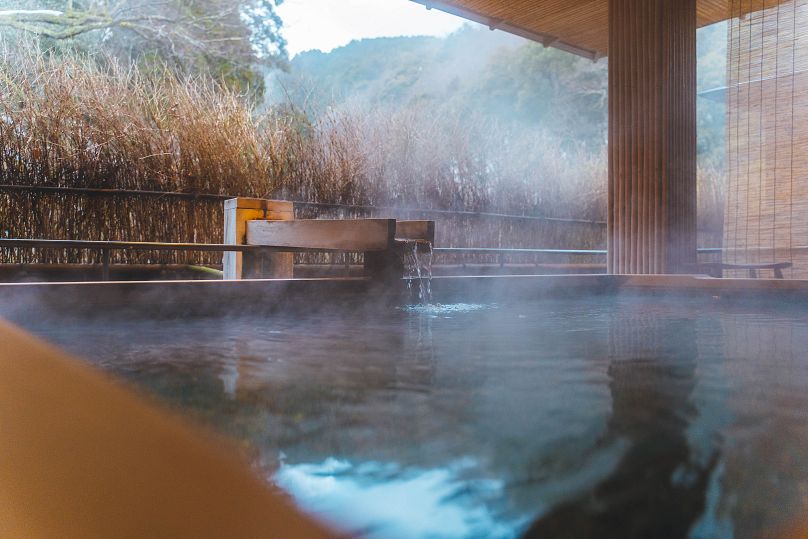Travellers help out with a range of tasks and receive reduced rates or a free stay in return.
The cost of living crisis means travellers have less cash to splash while staff shortages are a headache for hotels. Could there be a single solution for both problems?
 ADVERTISEMENT
ADVERTISEMENT
 ADVERTISEMENT
ADVERTISEMENT
This Japanese startup may have hit on the answer.
Otetsutabi (a word that merges the Japanese words for helping and travel) connects cash-strapped travellers with hotels in need of workers.
Travellers can help out with a range of tasks and receive reduced rates or a free stay in return. The company’s aim is also to help visitors to Japan escape to its lesser-trod corners.
Here’s how the scheme works.
A few hours of work to stay at a rural retreat in Japan
The concept of Otetsutabi is based on the practice of ‘wwoofing’, where volunteers lend a hand on organic farms in exchange for free accommodation.
In the Japanese version, workers take on tasks like cleaning rooms, making the beds, keeping common areas tidy and helping in the kitchen.
They are rewarded with stays in some of Japan’s most characteristic hotels and resorts.
Interested travellers need to head to Otetsutabi’s website, where accommodation operators post job offers including hours of work, types of tasks and benefits.
There are now hundreds of hotels, inns and mountain resorts listed on the site.
“We want to create a future where a person can play multiple roles and support local communities,” Rina Nagaoka, CEO of Otetsutabi, told the Japan News.
On the Otetsutabi site, you can refine your search by region or by type of work.
There are onsen (spa) hotels, mountain retreats, rice farms, ryokan (inns) and ski resorts to choose from.
Could the matchmaking scheme be a model for Europe’s short-staffed hotels?
For now, the scheme is primarily aimed at Japanese speakers - and the website is only in Japanese.
Prospective participants also need to have a valid work permit for the country.
But the matchmaking scheme could act as a model for Europe’s understaffed hotels, many of which have struggled to bounce back since the pandemic.
It could also be a solution for the overtourism that has plagued popular destinations across the continent.
As well as helping out travellers and the hospitality sector, Otetsutabi wants to encourage visitors to seek out rural and lesser-visited regions of Japan.
“The more empty the area seems, the more interesting it is,” says Nagaoka.
Participants of the scheme might try heading to the southernmost tip of the Izu Peninsula and explore the cobalt waters and lush cliffs along the coastline.
Alternatively, you could stay at the Yugawara Onsen, which overlooks the Hakone Mountain Range and snow-capped Mount Fuji. The hot spring has lured wellness-seeking visitors since ancient times and is mentioned in Japan's oldest poetry collection dating from 769AD.











